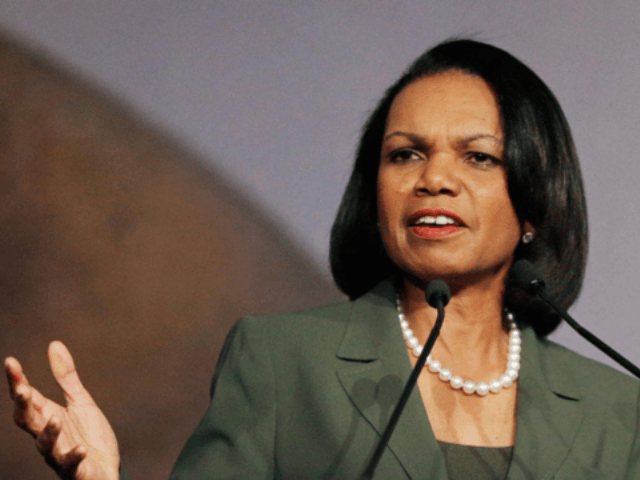Former U.S. Secretary of State Condoleezza Rice recently criticized college basketball rules that prevent student-athletes from making money off merchandise featuring their faces or names, a report says.
Rice called the rules “incomprehensible” but warned that the legal ramifications of the idea needs to be studied before compensation can begin, Sporting News reported.
“We believe that students ought to be able to benefit from name, image and likeness but you can’t decide a program until you know the legal parameters,” Rice told USA Today in a May 9 interview.
Apparently speaking on recommendations offered by the Commission on College Basketball, a group she chaired, Rice went on to say that her group could not fully expound on the idea without further study.
“I think some of the commentary suggested that we didn’t really speak on this issue,” Rice said. “I think we did speak on this issue, it’s just that we understand there’s a legal framework that has to be developed first.”
Rice referred to the case of Notre Dame women’s basketball player Arike Ogunbowale as a perfect example of the confusing NCAA rules on athletes benefitting from their college careers. Ogunbowale was granted a waiver from the league so that she could accept payment for being on TV’s Dancing With The Stars. The league quixotically claimed that her basketball career was not the reason she was asked to be on the show. Rice claimed the basis for the waiver was absurd.
“I couldn’t for the life of me understand the explanation,” Rice said adding, “because obviously, she’s there because she hit two winning shots in two basketball games (in the women’s Final Four), so that’s the connection.”
Clearly, the rules need to be changed. However, careful thought needs to be put into the mechanics of that change, Rice said.
Players have been trying to get the league to change the rules on benefitting from their likeness for some time. There were two recent federal lawsuits on the matter.
One was a case brought by former UCLA basketball player Ed O’Bannon who filed suit claiming that college players ought to be compensated when schools use their names and likenesses for advertising. In 2016, O’Bannon tried to get the U.S. Supreme Court to take the case, but the court refused his entreaty. The high court’s move left in place a lower court ruling from 2015 that favored O’Bannon, though it was a decision that did not satisfy advocates for college athletes to make money from advertising.
Another suit was filed by former Arizona State quarterback Sam Keller who wanted to be compensated by a video game company for its use of his likeness and name in a video football game. In 2014, the NCAA announced it had reached a $20 million settlement in the case.
Follow Warner Todd Huston on Twitter @warnerthuston.

COMMENTS
Please let us know if you're having issues with commenting.